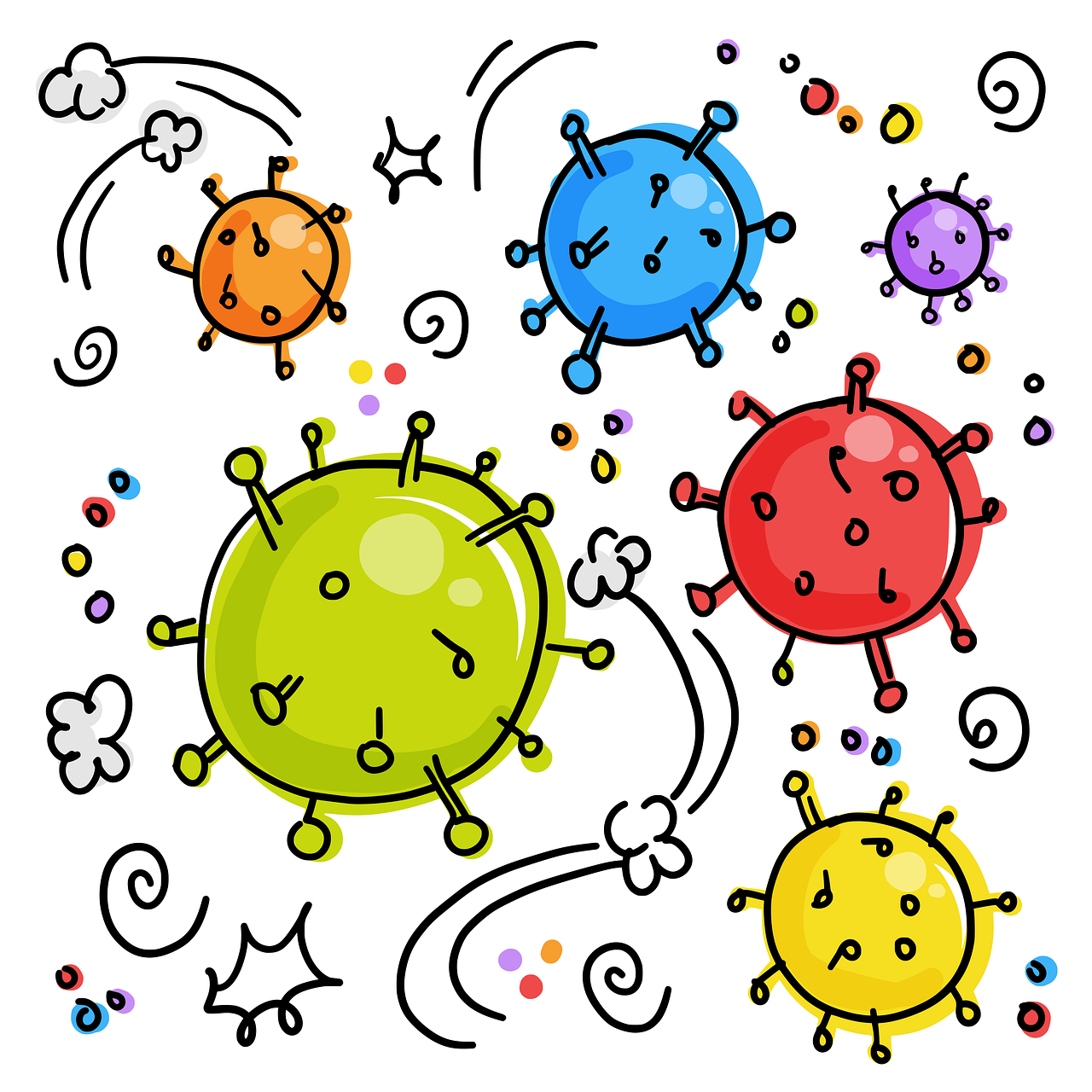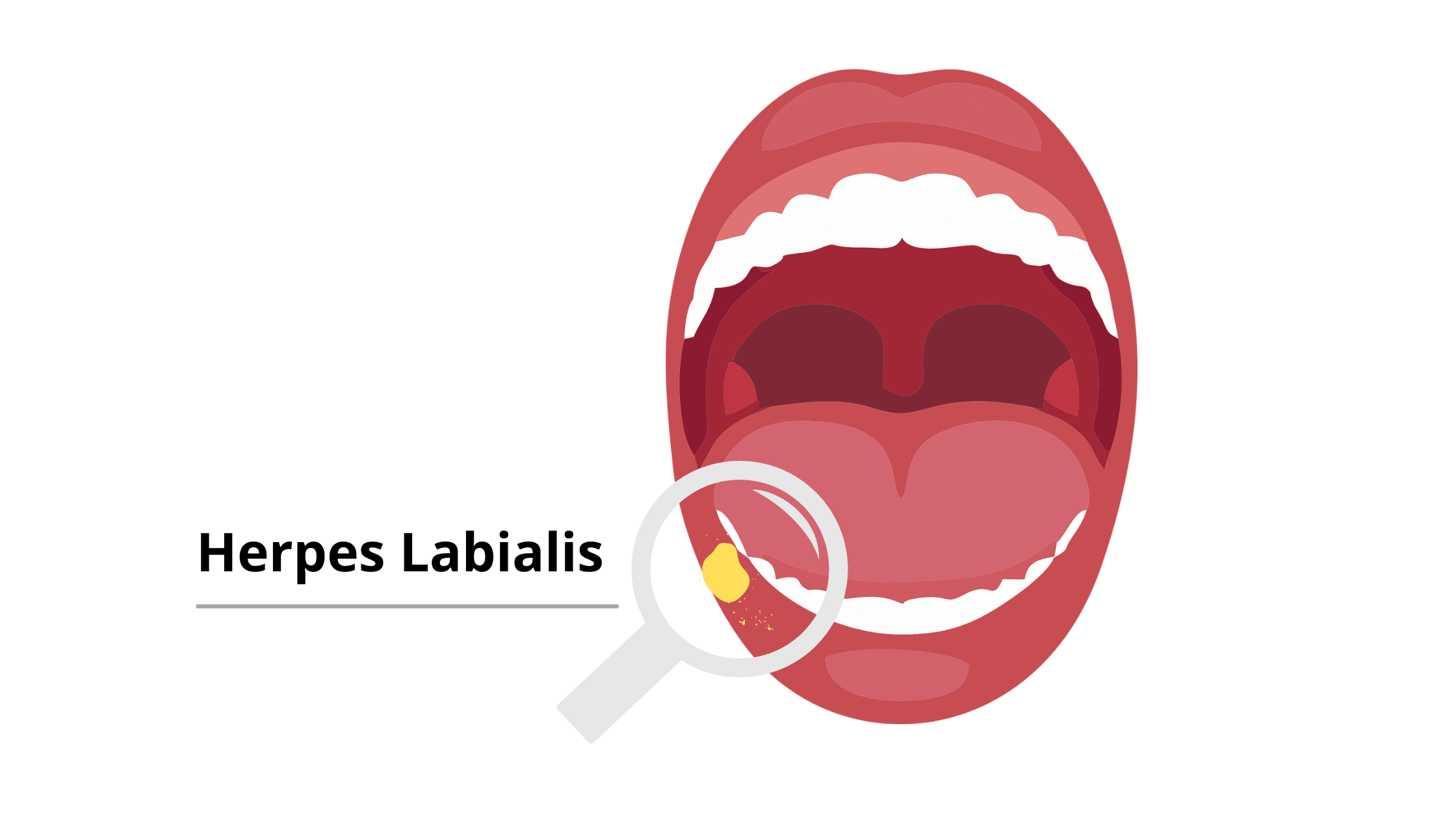How herpes viruses can affect your mouth (with helpful pictures)
 Oral infections caused by herpetic lesions are a widespread occurrence worldwide. In fact, 67% of individuals under the age of 50 are affected by herpes simplex virus type 1, which is the primary culprit behind viral infections of the mouth.
Oral infections caused by herpetic lesions are a widespread occurrence worldwide. In fact, 67% of individuals under the age of 50 are affected by herpes simplex virus type 1, which is the primary culprit behind viral infections of the mouth.
Surprisingly, most herpes infections go unnoticed, as the virus remains dormant within the body. However, when the virus reactivates, it can lead to many symptoms, including painful sores and ulcerations in and around the mouth.
In this article, we'll explore the different types of herpes infections that can affect the mouth, accompanied by helpful pictures for a better understanding.
In this article:
1. What is herpes virus?
2. How do herpes viruses affect the mouth?
3. What factors can reactivate the herpes virus again?
4. Other types of herpes viruses that can affect the mouth:
5. How is oral herpes infection treated?
6. How to prevent oral herpes infections?
What is herpes virus?
Herpes is a family of viruses that can cause infections in different parts of the body, including the mouth. Oral herpes infections are quite common and can affect people of all ages.There are various types of herpes viruses, each with its own characteristics and symptoms.
The most well-known that affects the mouth is called herpes simplex virus type 1 (HSV1). However, other herpes viruses can also show up in the mouth, such as varicella-zoster virus (VZV), herpes simplex virus type 2 (HSV2), cytomegalovirus (CMV), and Epstein-Barr virus (EBV).
Regardless of the specific type, all herpes viruses go through two distinct phases.
The first phase is known as primo-infection, which usually occurs during childhood when you first come into contact with the virus.
The second phase is called recurrence or reactivation. It typically happens in adulthood and can cause sores and ulcerations in and around the mouth.
How do herpes viruses affect the mouth?
Herpes viruses affect the mouth by damaging the cells in the inner lining (mucosa), leading to blister-like lesions. These blisters eventually break, leaving behind painful ulcers or sores.As previously mentioned, HSV1 is the most involved in oral herpes. It often first appears during childhood, usually between the ages of 3 and 5.
As the virus grows and multiplies, the body's immune response is triggered, resulting in fatigue, fever, headaches, and nausea.
Then, redness and blister-like lesions begin to spread throughout the mouth, causing what is called primary herpes gingivostomatitis.

When these oral lesions rupture, they leave behind small, painful ulcers. These ulcers typically heal completely within 7 to 14 days without scarring.
After the primary infection subsides, the virus becomes dormant and resides within the nerves. Later in life, under certain circumstances, the herpes virus can become active again. The recurrent herpetic infection often appears as "herpes labialis," commonly known as a cold sore. It mainly shows up on the lower lip and can cause a burning feeling, itching, redness, and pain.

What factors can reactivate the herpes virus again?
After the primary infection, the virus hides in the nervous system, where it lies dormant for decades, if not forever. However, certain factors can trigger its reactivation and lead to a new outbreak in the mouth. These factors include:- Stress
- Mouth injury or trauma
- Fever
- Common cold
- Malnutrition
- Hormonal imbalance
- Prolonged exposure to sunlight
- HIV infection
Other types of herpes viruses that can affect the mouth:
In addition to HSV1, other herpes viruses can also cause infections in the mouth. These include:- VZV (Varicella Zoster Virus): VZV is responsible for chickenpox and shingles. During the shingles phase, which usually occurs later in life when the virus reactivates (more often after age 50), it can affect any part of the mouth, such as the gums, cheeks, roof of the mouth, and lips. The lesions usually follow a specific nerve path and affect only one side of the mouth.
- HSV2 (Herpes Simplex Virus Type 2): HSV2 primarily affects the genital area. But it can occasionally be transmitted to the mouth, resulting in oral herpes.
- EBV (Epstein-Barr Virus): EBV is associated with many conditions like infectious mononucleosis, commonly known as mono. It is highly contagious and mainly spreads through saliva. In addition to symptoms like swollen lymph nodes, fever, headache, and fatigue, mono can also cause bleeding, painful, and ulcerated gums.
- CMV (Cytomegalovirus): CMV is another herpes virus that can manifest in the mouth as canker sores or painful ulcers.
How is oral herpes infection treated?
The treatment of oral herpes infections may involve the following approaches:- Antiviral medication: Antiviral medications can reduce the severity and duration of outbreaks by suppressing the herpes virus. This allows the body to heal more quickly.
- Antiseptic mouthwash: Antiseptic mouthwash promotes oral hygiene and prevents secondary infections.
- Soft foods: Following a soft diet during a mouth viral infection helps prevent further irritation of the affected area. Soups, mashed potatoes, yogurt, and smoothies are examples of soothing options.
- Painkillers: Over-the-counter pain relievers like acetaminophen or ibuprofen manage pain and inflammation during the infection, providing temporary relief.
How to prevent oral herpes infections?
To prevent oral herpes and other viral infections in the mouth, remember that they can spread through saliva, direct contact with sores, or the inside of the mouth. It's also possible for the virus to transfer from the genital area to the mouth. Here are some important tips to help you prevent these infections:- Avoid direct contact with oral herpes sores or lesions. Also, do not share items like utensils, cups, or lip balm with someone who has an active outbreak.
- Practice good oral hygiene by brushing your teeth regularly and using dental floss.
- Avoid intimate contact, like kissing, with individuals who have oral or genital herpes.
- If you have an active herpes infection, avoid intimate contact with other people to avoid spreading the virus.
- Use barrier methods during sexual activities to protect yourself.
- Wash your hands regularly throughout the day.
Sources
- Detailed STD Facts - Genital Herpes (cdc.gov)
- Report a possible correlation between necrotizing ulcerative gingivitis and mononucleosis (medigraphic.com)
- Infectious Mononucleosis: aka "MONO" (CCSU)
- Herpetic Gingivostomatitis - StatPearls - NCBI Bookshelf (nih.gov)
- Shingles (Herpes Zoster) | CDC
- Herpes simplex virus (who.int)
- Essentials of Oral Pathology by Swapan Kumar Purkait (Author)
- Oral Medicine (A Colour Handbook) by Michael A.O. Lewis (Author), Richard C.K. Jordan (Author)
